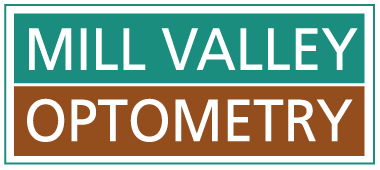Impact on Subjects
Considering 80% of the information you process comes through your visual system, it’s not surprising that a vision problem can affect a number of different subjects. Here’s a brief overview of how vision problems can manifest in various areas.
Reading
Vision problems affect reading in two significant ways:
- When a student is learning to read, a serious vision problem could reduce their ability to know what they are looking at and impact their ability to remember numbers and letters.
- When a student is reading to learn and has blurry or double vision, their ability to read for long periods of time and comprehend what they are reading can be severely reduced.
The ability to read and the ability to comprehend what is being read are two different things. Comprehending what is read is a visual process, and can be affected when the visual system is not working correctly. If a student sees words on the page as blurry or double, he or she has to use extra effort to keep the words single and clear and this can negatively impact comprehension.
Students with vision problems spend the majority of their time decoding words. Instead of reading fluidly and visualizing the words and the message as a whole, they focus on each specific word. This is a struggle, making it difficult to quickly process sections of text.
Learn more about Vision and Reading here by downloading our Vision and Reading PDF.
Math
If a student has difficulty seeing things clear and single, they may have trouble seeing decimals and/or signs. An important skill in math is to organize what is being written and the student may have trouble lining things up and keeping their place if their visual skills are poor.
Laterality and directionality are also important concepts in math. If a student sees the orientation of numbers incorrectly, they will have difficulty completing the problem.
Students who lack visualization skills can often be found counting on their fingers or verbalizing sequences. Given enough time, they can generally compute an answer, but they tend to do poorly on timed tests. Awareness of numbers and what they mean as well as being able to visualize numbers and quantities are critical to success in math and can be impacted if a child has a vision problem.
It should be noted that a child with vision problems may do well in math, but may be a poor reader primarily because math doesn’t require as many precise eye movements as reading.
Spelling
Visual recall, the ability to create a visual image based on past visual experience without currently having that experience is a visualization skill that is critical for spelling. In spelling, it is the ability to create a mental image of a word without being able to look at the word.
Writing
Writing involves both handwriting and composition skills. It is necessary for vision to lead the hand for handwriting and this can be very difficult if the student cannot see well. In fact, often you can see in the handwriting where the student stopped looking or became fatigued. Difficulty writing straight on a page is often a result of poor peripheral awareness.
There are several vision-related skills that are critical to good handwriting that may be underdeveloped in a student with vision problems. Visualization is also important in handwriting because the student needs to remember what different words look like in order to reproduce them on the page. Spatial concepts are important in handwriting to know and plan how words will go together. Good laterality and directionality are important to differentiate similarly-shaped letters in different orientations (e.g. b, d, p, q).
Visualization is also critical for writing composition because the student needs to be able to organize and re-organize the composition in his or her head.
